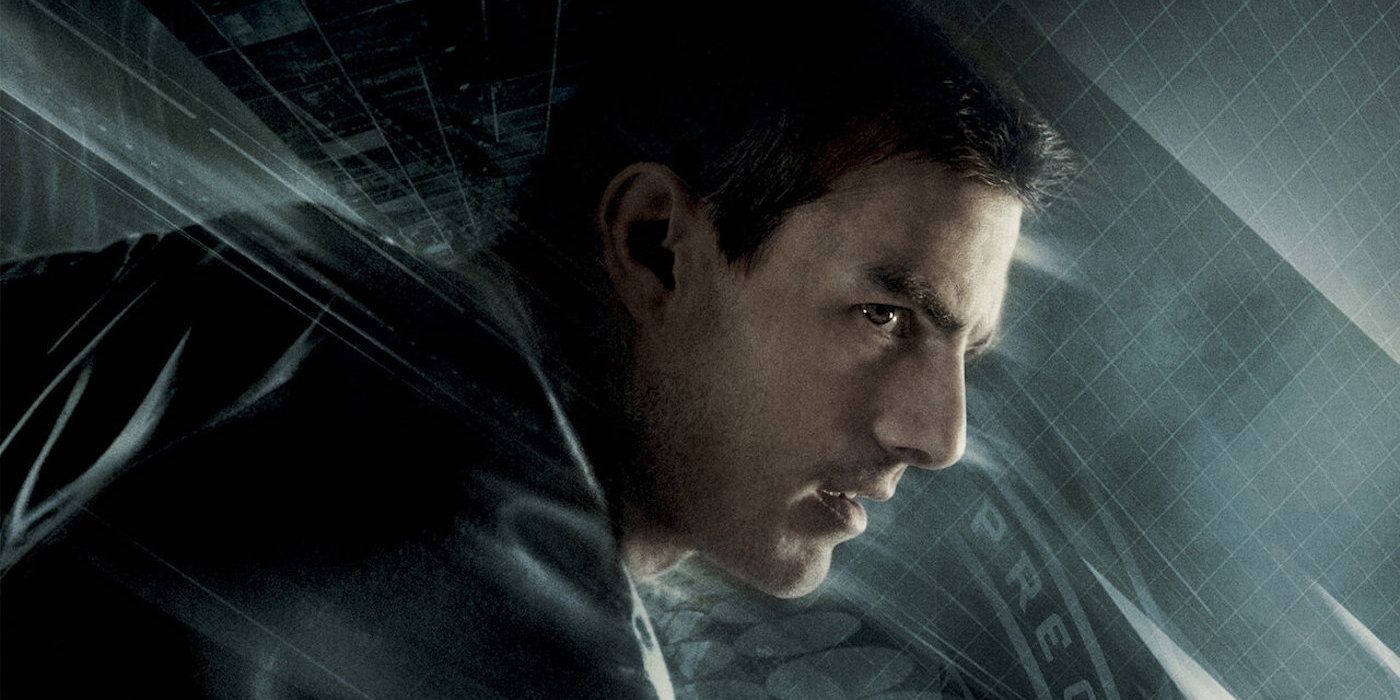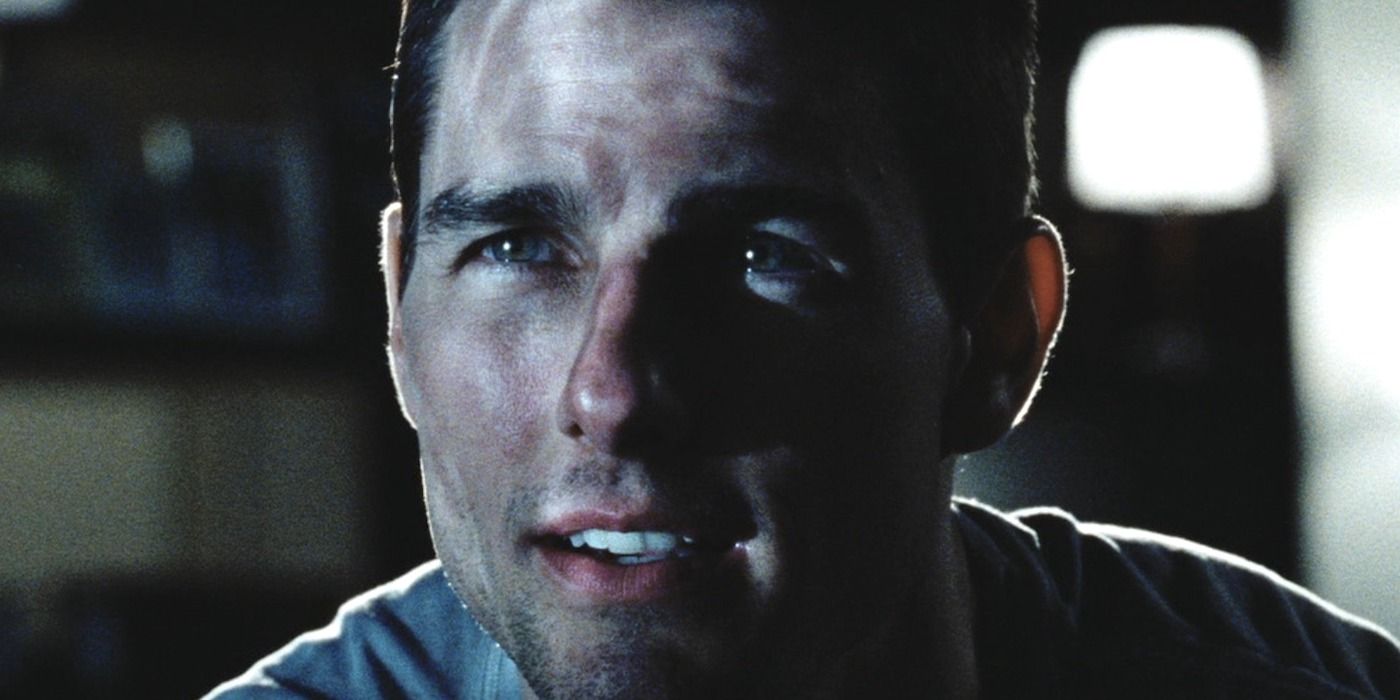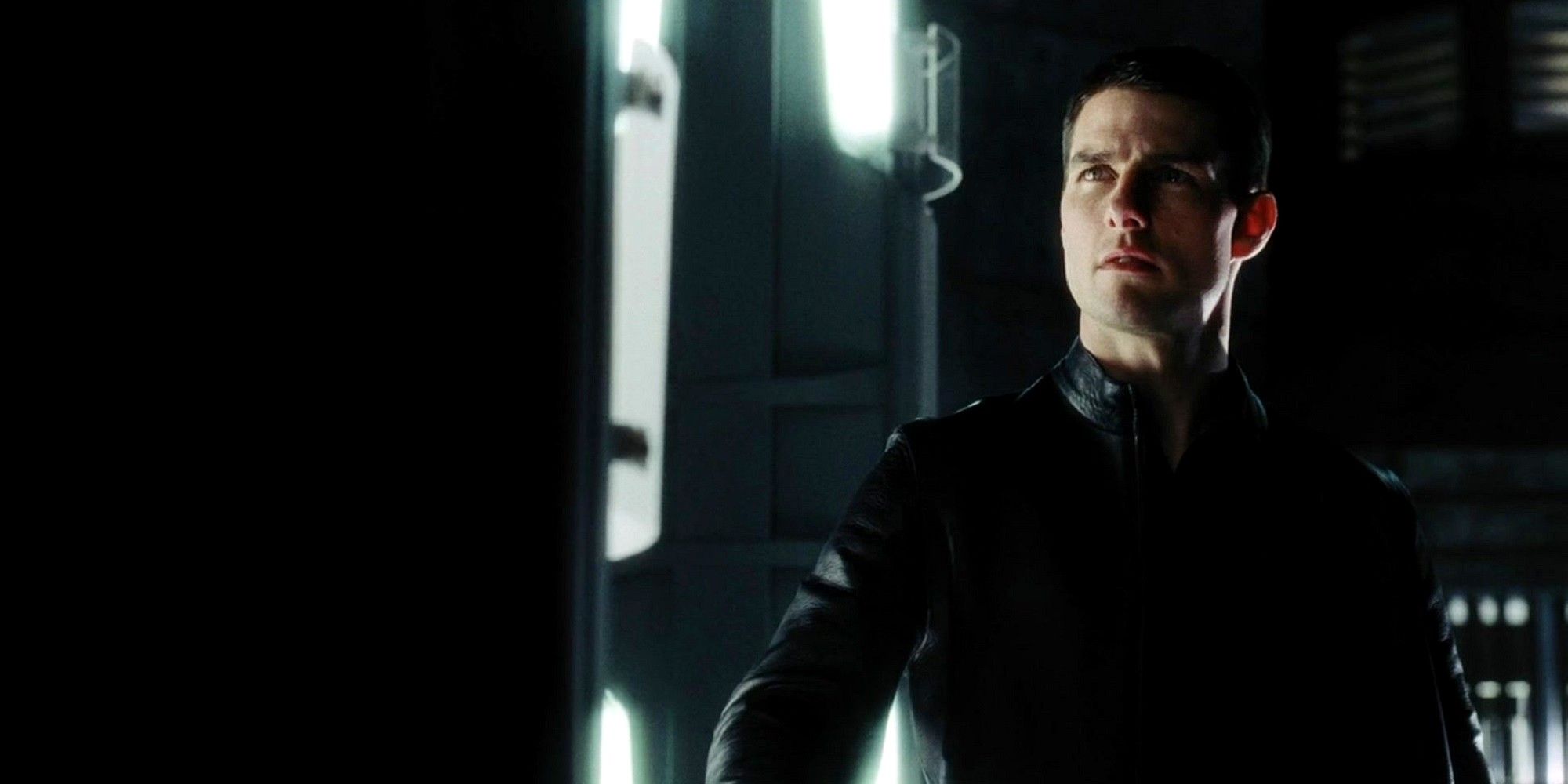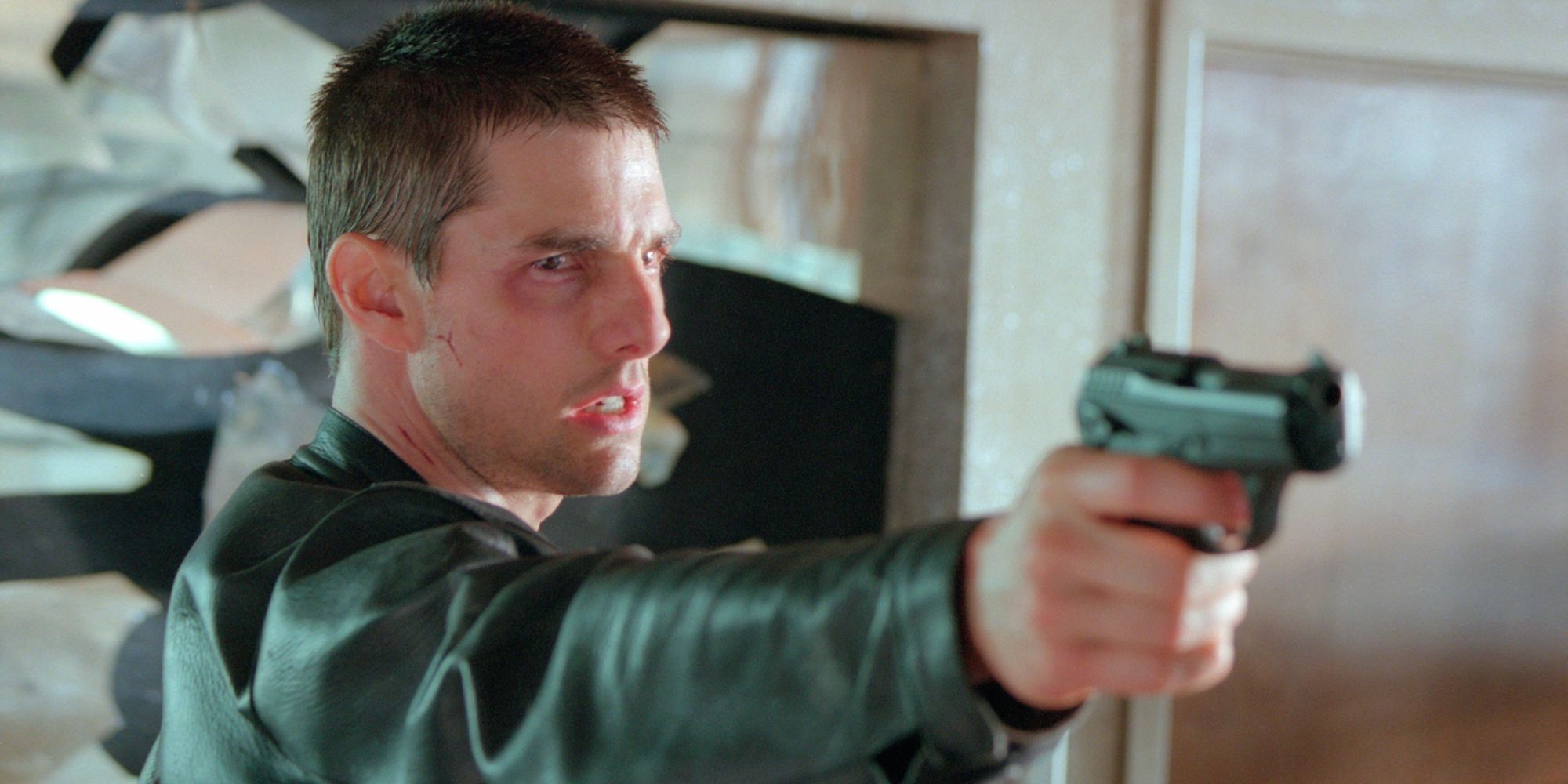I had Minority Report wrong. When you look at it in the context of Steven Spielberg's overall filmography, the film's ending seems like it follows in the footsteps of movies like Schindler's List, Saving Private Ryan, and even A.I. Artificial Intelligence (some view the ending as bleak, but Spielberg says its happier conclusion is where he and Stanley Kubrick wanted to take it). Spielberg is a director who doesn't really go for ambiguous endings and wants to give the audience a feeling of hope even in the face of humanity's darkest impulses, and so I viewed Minority Report the same way—a film that has a bleak ending (Tom Cruise's protagonist John Anderton goes in the ground, sentenced for a crime for which he was framed), but then it keeps going so that Spielberg can have a happier conclusion. Upon a recent viewing, however, it's clear that Spielberg crafted the most ambiguous ending of his career and one that speaks to the film's larger thematic intersection of choice and observation. With Minority Report recently streaming on HBO Max, it's an ending worth revisiting.
'Minority Report' Questions If Seeing Is Believing
Minority Report is a movie obsessed with what we can see, and that seeing is believing. The Department of Precrime is based on visions of the precogs. The precogs only give out little bits of information and it's up to detectives to piece them together into a narrative that makes sense of an upcoming murder. John Anderton, a man haunted by visions of his past where his son was kidnapped and never found, now devotes his life to visions of the future even though, as the film unfolds, these visions are far from ironclad despite the religious implications put upon the precogs (the film comes right up to the line of calling them "oracles", their dwelling is nicknamed "the temple", and even one of John's fellow detectives remarks, "We're more like clergy than cops."). People want to believe that the precogs are infallible, so they build the case around that. As is so often the case with human nature, believing is seeing rather than the other way around.
Spielberg and screenwriters Scott Frank and Jon Cohen (working from a short story by Philip K. Dick) constantly draw attention to notions of observers and the observed. The Washington, D.C. of 2054 is pretty much a surveillance state where privacy has been eliminated for one reason or another. Sometimes it's to sell your crap as scanners read your eyeballs (note that Spielberg chose to base identification around eyes—our instrument of vision—rather than faces) and sometimes it's the government to track your every movement like when John boards a train. John is a drug addict, and his drug is supposed to provide "clarity" even though he just gets high and hides in the past of happier times with his lost son. When Agatha grabs John for the first time to show him a particular vision, she asks him, "Can you see?"
Added Surveillance Doesn't Make 'Minority Report's World More Just
And yet the world presented in Minority Report, a world that has cut down on 90% of murders, is not a "better" or "more just" world. It's a world with a filthy underbelly where the surveillance state hasn't solved poverty or improved people's lives. Rather than a pleasant dystopia, Spielberg and cinematographer Janusz Kaminski shoot almost the entire movie in greys and blinding lights, a world where nothing is clearer, just more sterile until you need a crime like getting your eyeballs replaced. But even in the scene where the cops send "spiders" around to scan everyone's eyes, it's all a matter of what we don't see. The cops are looking for John, but they miss all the human tragedy around them whether it's the scared family or the bickering couple or the dilapidated surroundings. As is often the case with Minority Report, just because something has your focus, that doesn't mean you've seen the whole picture.
That's the trap I fell into. I was so focused on Spielberg's narrative tendencies that I missed understanding the film holistically. Instead, I viewed it structurally, and the structure seemed to hinge more on the inevitably of fate even though, as I saw on this recent viewing, fate is upended multiple times. "You can choose," Agatha (Samantha Morton) pleads with John, and John decides not to kill Leo Crow (Mike Binder). The second choice arrives in the film's conclusion.
What Happens at the End of 'Minority Report'
At the climax of the film, John has been apprehended and "haloed", a device put around his head that basically causes him to go catatonic so the authorities can put him into the ground for the rest of his natural life. The story then continues with Lamar Burgress (Max Von Sydow) preparing to be feted for the nationwide implementation of the precrime program. However, John's ex-wife Lara (Kathryn Morris), breaks into the containment unit where John is being kept and liberates him. They then work together to expose the evidence that Lamar worked his way around the pre-crime system to avoid being captured for the murder of Anne Lively (Jessica Harper), Agatha's mother. Anne wanted her daughter back, but that would have broken the precrime department, so Lamar decided to kill her and make the murder look like an echo, an aftershock that technicians would write off rather than the actual murder. Yet again, people see something, but what they're seeing has been altered by their own beliefs.
Meanwhile, as John moves to confront Lamar, the precogs signal a new upcoming murder—Lamar will kill John at the party. When John arrives at the party where Lamar has been exposed for killing Anne, John presents Lamar with a choice: fulfill the precogs' prophecy and commit murder, or admit that the system is flawed and that the future can be changed once it has been observed. As the Observer Effect states, the act of looking at something changes it. My look at the film changed it into a pattern of Spielberg's filmography, but looking at the whole picture—the stuff I overlooked and missed, similar to the characters—changes its entire complexion.
Looking at the film now, it's not that the film's conclusion happens or if it's just a vision in John's head. Does the bad guy get away with it, or does the hero save the day? It depends on how you're willing to look at it. We've just been treated to a film that's all about the fallibility of our own visions. We have a surveillance state that misses the justice it's supposed to implement. We have a program ostensibly to protect humanity that comes from the suffering of three innocent beings who are perpetually tormented by visions of murder. We have a hero who made it his mission to avert a horrible vision and ended up fulfilling it like Oedipus Rex, who famously gouged out his own eyes. So is Minority Report a depressing Greek tragedy or an uplifting Hollywood blockbuster? You can choose.



